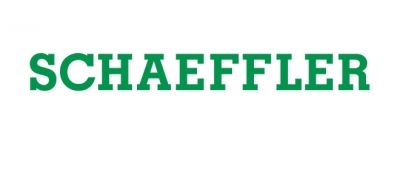ABT and Schaeffler Collaborate to Electrify Light Commercial Vehicles
The Schaeffler Group and ABT e-Line GmbH (hereinafter referred to as ABT e-Line) have established a strategic collaboration for the electrification of light commercial vehicles weighing up to 3.5 tons. ABT e-Line is a 100-percent subsidiary of ABT Holding that, as a premium partner to Volkswagen Commercial Vehicles, has been commissioned to fully electrify light commercial vehicles including the T6 and Caddy models; it also bears customer responsibility for the electric powertrain, including the warranty.
The Schaeffler Group, which has been doing pioneering work in Formula E in partnership with the ABT Group since 2014, will contribute its technological and – provided the subsequent cartel clearance is obtained – management expertise to the partnership and will develop and supply technological solutions for the electric powertrain. In the initial phase, Schaeffler will be focusing together with VW and ABT on project management – from concept through to homologation – and on system supplier management. What is more, Schaeffler possesses a wealth of relevant expertise in the fields of purchasing, manufacturing, and quality assurance, all of which it will be contributing to this collaboration. Schaeffler Engineering already develops electronic control systems for ABT e-Line for use in the conversion of light commercial vehicles from VW.
The objective of the collaboration between the Schaeffler Group and ABT e-Line is to develop more advanced electric powertrains and to integrate and incorporate them into vehicles, focusing on light commercial and special vehicles. A further objective is to develop flexible mechatronic chassis solutions. In the medium term, the Schaeffler Group sees potential for further orders and for small and medium-sized production volumes in the commercial and special vehicle sectors.
Efforts to reduce vehicle emissions in urban areas are focusing heavily on light commercial vehicles, particularly where intra-urban traffic is concerned. What is more, manufacturers have to fulfill the regulatory upper limits for emissions in the light commercial vehicles segment separately – it is not possible to offset emission values against those of passenger car fleets. The performance capability of today’s electric motors can now largely fulfill the typical requirement profiles for light commercial vehicles used in intra-urban applications.
This segment is also gaining importance when it comes to modern mobility concepts, since the demand for clean, efficient, and economical mobility is rapidly increasing in metropolitan areas all over the world – a situation that mobility service providers are moving to accommodate. The transport (including passenger conveyance) and logistics sectors in particular offer major potential for establishing (fully) automated driving solutions.
Klaus Rosenfeld, CEO of Schaeffler AG, explained: “Following on from our trusting and successful partnership with the ABT Group in Formula E, we have now decided to work together in tackling the challenges of commercial vehicle electrification. The combination of Abt’s entrepreneurial approach and Schaeffler’s understanding of systems and in-depth expertise in the field of powertrain and chassis applications puts us in a perfect position to create something new and to move forward even faster. A proven partnership and a win-win situation for all those involved – innovative, bold, and with major business potential. That has a future!”
Hans-Jürgen Abt, CEO of ABT Sportsline GmbH, had this to say: “Schaeffler and ABT have been collaborating for several years in a partnership shaped by absolute trust, great passion, a strong pioneering spirit, and the utmost professionalism. And that is exactly what we are bringing to this project. The collaboration with Volkswagen Commercial Vehicles that we started one-and-a-half years ago is an ambitious project for ABT, and I am proud of the fact that we will soon be seeing the first electrified ABT vehicles on the road. Having Schaeffler as a strategic partner and thus having its technological expertise on board means we have a strong partnership to tackle the challenges of electrification.”




